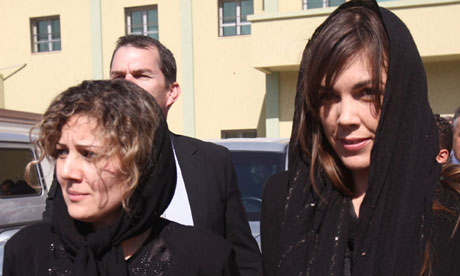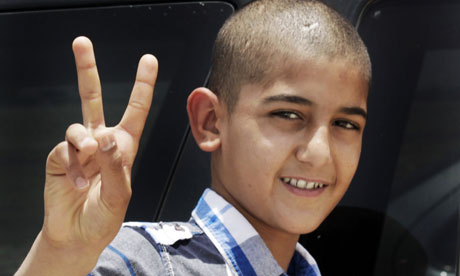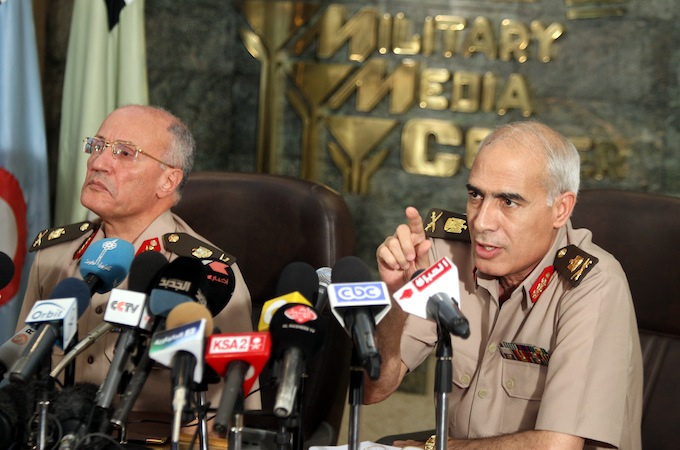By Ali Al-Bassam
Impunity Watch Reporter, Middle East
TRIPOLI, Libya — Australian lawyer Melinda Taylor and her three colleagues from the International Criminal Court (ICC) were released this Monday after being detained in Libya for nearly a month. The ICC sent them to Zintan to prepare Seif Al-Islam Gaddafi’s defense. They have been held there since June 7, after Taylor and Helene Assaf, a Lebanese translator, were accused of smuggling documents and hidden recording devices to Al-Islam. The group’s two male members, Alexander Khodakov, a Russian, and Esteban Peralta, a Spaniard, chose to stay with Taylor and Assaf out of solidarity.

The Zintani militia released the four members as a “humanitarian” gesture after ICC President Sang-Hyun Song traveled to Zintan on Monday and apologized to the Libyan government.
“I wish to apologise for the difficulties which arose due to this series of events. In carrying out of its duties, [the ICC] has no intention to compromise the national security of Libya,” Song said in a news conference held on Monday. Last week, the ICC promised to investigate any claims of wrongdoing and to apply “appropriate sanctions” if necessary.
Taylor and Assaf met with Song after the news conference over lunch. When asked by the Guardian about whether she was now free to go home, Taylor said, “I don’t know. I think so.” The four then met with ambassadors from their respective countries at a Tripoli military airport on Monday evening and boarded an Italian plane headed for Europe.
Friends and family of Taylor refused to comment during her detention, but they insisted that she was a respected professional lawyer who would not have done anything improper. They suggested that the espionage accusations made by the Zintani militia were the result of a misunderstanding about the role and prerogatives of a western-style defense lawyer.
The four ICC members were sent to Zintan last month on an official mission to speak to Al-Islam about his defense rights. Al-Islam, who was considered to be the heir apparent to his father, former Libyan dictator Muammar Gaddafi, was captured by the Zintan militia last November while he attempted to flee the country. The ICC wants to try Al-Islam at The Hague, but Libyan officials refuse to extradite him, as they would prefer to try him in their own courts instead.
Both the ICC and the Libyan government pledged to work together for the trial of Al-Islam. Mohammed Abdel Aziz, Libya’s Deputy Foreign Minister, told reporters at the news conference, “The agreement is that there would be a continuation of the negotiations with the ICC.”
Judicial experts believe Al-Islam is unlikely to have a fair trial in Libya. They also feel that the detainment of ICC officials highlights the tasks ahead for the interim government in imposing its authority on militias who helped topple Gaddafi and are now vying for power.
Libyan Authorities expect Taylor to return to the country to hear her final ruling on July 23. A senior member of the Libyan Attorney General’s office commented, “[w]e expect them to come back for the hearing, but if they don’t, a ruling will be made in absentia.”
For further information, please see:
Al Jazeera — Libya Releases Detained ICC Staff — 2 July 2012
BBC News — Libya: ICC Staff Held in Zintan Released — 2 July 2012
Guardian — Libya Frees International Criminal Court Legal Team Accused of Spying — 2 July 2012
Reuters — Libya Frees Detained ICC Staff After Apology — 2 July 2012



